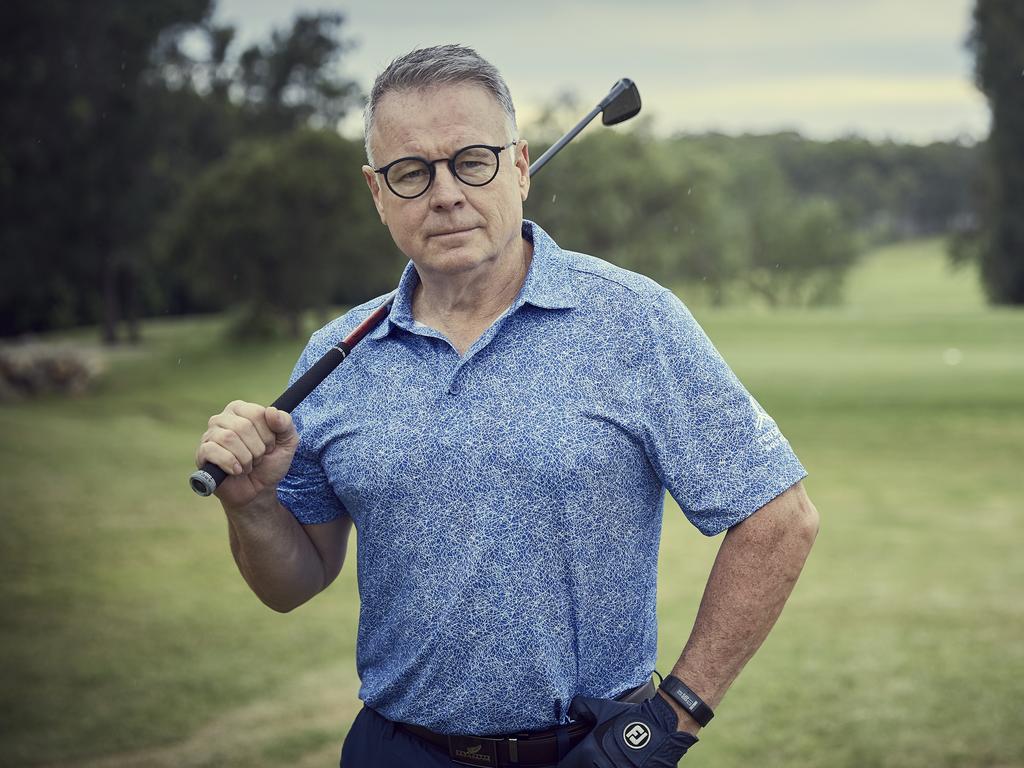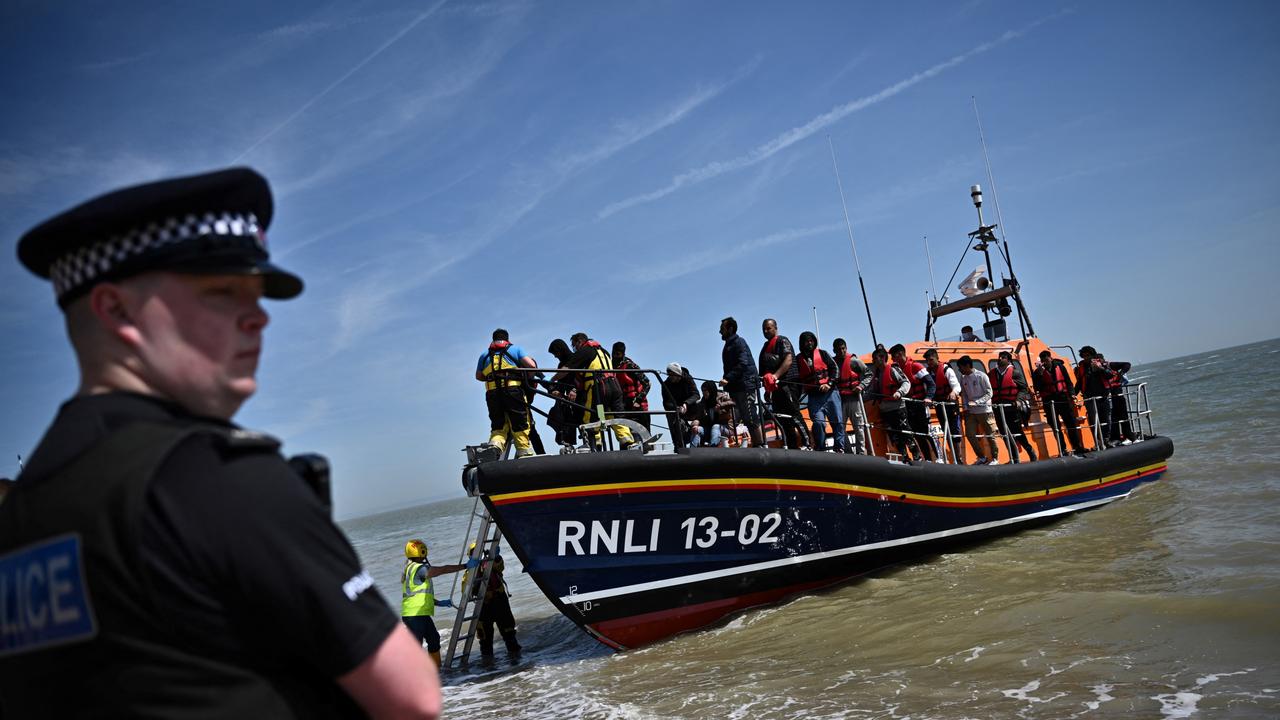The issue that will not die
With passage of Queensland’s bill, NSW now is the sole holdout on assisted dying laws.
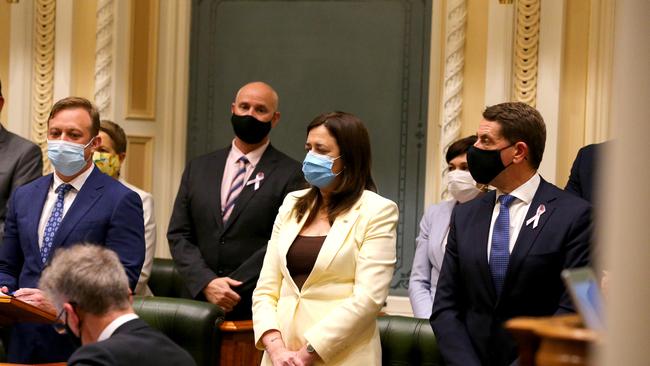
There was something almost anticlimactic in the passage of Queensland’s voluntary euthanasia law on Thursday, so inevitable was its progression through the lone-chamber state parliament. The count: a thumping 61-30 in favour.
It was a historic moment nonetheless for what has long been reputed to be the nation’s most socially hidebound jurisdiction, the much-ridiculed home of police raids on private abortion clinics in the 1980s and Joh Bjelke-Petersen’s losing fight against condom dispensing machines, to name but two flashpoints in what now seems like a very distant culture war from an all-too different time.
The wider implication of Queensland’s adoption of voluntary assisted dying – the politically neutral descriptor of the process for a terminally ill person to legally enlist medical help to end their life – is that every state bar the largest, NSW, has VAD on the statute books. The schemes in Victoria and Western Australia are fully operational.
All eyes now turn to the bearpit in Macquarie St, downtown Sydney, where independent MP Alex Greenwich plans to seize the moment and introduce private VAD legislation to the lower house of the NSW parliament next month.
This promises to be a considerably more fraught proposition than the rails run the reform has had to date.
For a start, Premier Gladys Berejiklian and Labor leader Chris Minns are opposed, and that’s a hurdle the powerful pro-VAD lobby has not had to clear elsewhere.
You can hear the argument: that in the teeth of a crippling Covid-19 outbreak, with locked-down Sydney and much of the state gearing up to reopen as the vaccination rate edges towards the 70 per cent double-dose mark, politicians of all stripes have more pressing concerns. It’s a fair point.
Factor in Berejiklian’s searing experience with the last conscience issue to go before the state parliament, abortion decriminalisation in 2019, when she stared down a threatened spill motion in her own party room, as well as the ongoing fallout of a corruption investigation into her ex-boyfriend and disgraced former MP Daryl Maguire, and her reluctance to have parliament take on VAD for the second time in five years is entirely understandable.
But probably not sustainable given the momentum behind the right to die movement.
One of the intriguing features of the legislative rollout is its up-ending of accepted political norms, and not just in the supposedly socially conservative heartlands of Labor-governed WA and Queensland.
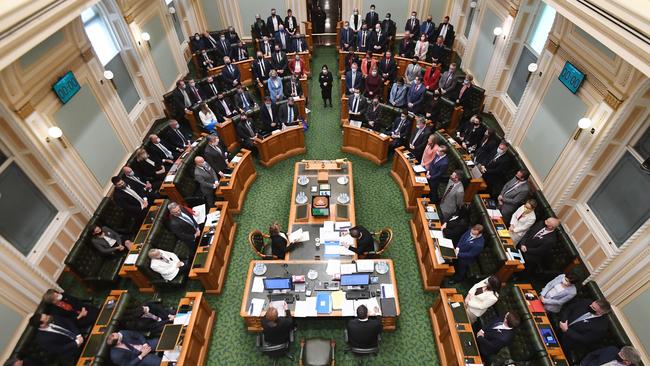
In NSW, state Nationals MPs number among the strongest supporters of VAD, headed by Deputy Premier John Barilaro.
A little more than a decade ago Queensland’s first female premier, Anna Bligh, a product of the Labor Left, baulked at abortion law reform despite recognising the strong case for action. Why blow up the government over a measure that wouldn’t get through the ALP caucus, let alone parliament, Bligh told those urging her on. If that was a bridge too far, euthanasia seemed like pie-in-the-sky.
Yet when Annastacia Palaszczuk, a minister under Bligh, legislated in 2018 to excise the century-old sanctions against abortion from the criminal code, the bill passed 50-41. Only three Labor MPs voted against VAD this week.
Still, there are no guarantees for the private member’s legislation Greenwich plans to introduce on October 12, the day the NSW parliament is due to return from its forced Covid hiatus. He has been working on the bill for more than a year, picking the eyes out of the offerings interstate, liaising closely with the parliamentary counsel’s office, and is considered to have done a generally good job with the drafting by fellow MPs.
Greenwich, the independent member for Sydney, calls the legislation conservative – which it needs to be to stand any chance of getting up. He knows the terrain better than most, having been the architect of the Reproductive Health Care Reform Bill that caused Berejiklian such grief two years ago and a member of the cross-party group behind the push for VAD in 2017 – via the upper house – that went within a single vote of passing. This time it will go straight into the main chamber, the Legislative Assembly.
Surely he’s kidding himself? In addition to being against Greenwich’s bill, the Premier is reported to have told the Liberal party room she would not allow another conscience vote this term after the bruising experience of abortion law reform. There is a degree of speculation around her position, though, with some government MPs arguing that she was referring to new matters, allowing VAD to slide through as unfinished parliamentary business.
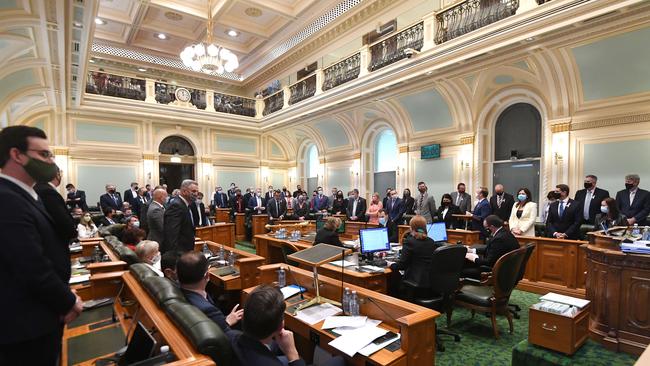
Despite his personal aversion to it, Minns has agreed that Labor MPs can vote their conscience. But that leaves both leaders in the No column, a big disincentive for ambitious members of their respective teams – and who isn’t in politics? – to follow an inclination to back the legislation.
The unknown quantities continue to pile up. Berejiklian’s office failed to engage with Inquirer to clarify her position on a conscience vote, while Greenwich won’t be drawn on his private conversations with colleagues or manoeuvring over the bill.
Asked about the legislation’s prospects, he says only: “I don’t want to pre-empt numbers. What I will say is that support continues to grow and I am really grateful for the seriousness with which my colleagues are treating this reform.”
Andrew Denton, who knows a thing or two about this process, rates the chances of success as “at best 50-50”. Credit where credit is due: the prominent television entertainer, interviewer and producer has used his star power to drive the campaign from state to state. When he founded lobby group Go Gentle Australia in 2016, euthanasia law reform was well and truly on the backburner.
Denton grabbed every microphone he could to tell the wrenching story of the excruciating death of his father, Kit, and quietly got in the ear of politicians, newspaper editors and opinion shapers to fire up the debate.
From the outset, he cited three “bedrock principles” for VAD. First, to access voluntary euthanasia a person would need to be a mentally competent adult, excluding children or those with dementia or Alzheimer’s disease; the request to die would be required to be voluntary, demonstrably free of any coercion and repeatedly stated; third, the person must be in intolerable pain from a terminal physical illness or condition, excluding the grounds of “purely psychiatric suffering” recognised by some European jurisdictions. In one form of wording or another, these axioms are reflected in every piece of legislation to date.
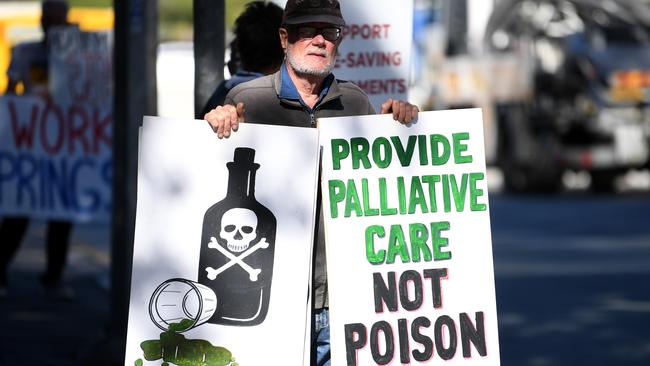
The breakthrough came in the Victorian parliament in November 2017, followed by WA in December 2019, Tasmania in March this year, South Australia in June and now Queensland.
“If you had asked me five years ago did I foresee this, I would have said no,” Denton says. “That’s why Victoria was such a pitched battle because, I think, both sides understood the consequences. From our point of view, we knew if a law was passed it would give the lie to all the fearmongering.
“And that’s proved to be so. The results from Victoria have completely undermined all those scenarios about doctors killing vulnerable patients, about palliative care being decimated. These laws haven’t passed because of opinion polls that have support (for assisted dying) in the range of 80 per cent, even though they are an indicator of how the public feels, they have passed because of the evidence.”
Denton says Greenwich’s bill is narrow and necessarily so: “Alex has taken a sensible approach: it’s cautious and it’s pitched at this parliament.” Unlike the newly inked Queensland act, arguably the most adventurous to date. Palaszczuk’s legislation picked up WA modifications to allow doctors to raise VAD with the patient – who in Victoria must initiate the discussion – and nurse practitioners to administer the death-dealing medication. Doctors have an absolute right of conscientious objection to steer clear of assisted dying in Victoria, but if they do so in other states they must refer the patient on to another practitioner willing to be involved. In Queensland, eligibility is extended to all terminally ill patients with a diagnosed life expectancy of 12 months or less, as opposed to the standard six months elsewhere, including in the draft NSW legislation (pushed to a year for advanced neurodegenerative disease sufferers).
The sticking point is the right of institutional conscientious objection sought by faith-based health and aged-care providers to opt out on moral grounds. The SA act protects church-aligned hospitals, allowing them to bar entry to outside doctors or medical staff practising assisted dying, while recognising that a nursing home or residential care facility is the patient’s permanent place of residence and must be accessible. The laws in Victoria, WA and Tasmania are silent in this regard.
The Queensland experience shows how swiftly the goalposts can move. The state law reform commission, tasked by Palaszczuk to frame the legislation along lines employed in Victoria and WA, was referred a draft bill produced by Brisbane law professors Ben White and Lindy Willmott containing conscientious relief for faith-based entities. But the academics revised their position in a subsequent paper.
This was picked up by the commission, resulting in the protection being stripped from the legislation, to the horror of the church sector. All faith-based providers would be allowed to advertise their rejection of VAD and make this clear to incoming patients or residents. But if push came to shove and an eligible person could not or would not be moved, the institution must provide access to outside practitioners to perform VAD.
As Deputy Premier Steven Miles put it recently: “In some situations, requiring an individual to leave their home and transfer to a different hospice, when they’re close to death and in great pain, would subject them to pain and distress or deny them access to voluntary assisted dying.
“It’s important the voluntary assisted dying scheme provides all Queenslanders who are suffering and dying with equal end-of-life choices, irrespective of where they live.”
White says the shift was based on largely anecdotal evidence from Canada and Victoria, and more work needs to be done to clarify how much distress is caused to patients and loved ones when VAD intersects with faith-based care. All parties agree that only a fraction of people seeking medical intervention to die stand to be affected.
In his podcast Better Off Dead, Denton documents the plight of 79-year-old retired philosophy professor Colin, who was semiparalysed by a surf accident and went on to contract inoperable bowel cancer, leaving him bedridden in a Catholic nursing home in Melbourne. After he applied successfully for VAD, without informing provider Mercy Health, he was told it could not happen on the premises: Colin was unable to say goodbye to friends and staff when, belatedly and traumatically for him and his family, arrangements were made for him to end his life legally in a public hospital last August.
Mercy Health admits: “We do not assert that our response is perfect. We understand that the system for both those services providing VAD practitioner support, and those not providing it, whether for moral or other reasons, has, at times, provided challenges and is subject to the limitations of care environments.”
Greenwich says his adoption of the SA institutional protections reflects the guarded approach of his legislation. After further consultation with the NSW aged-care sector, dominated by church-aligned providers, he will tweak the bill to require the doctor co-ordinating a VAD request to tell the patient to notify the home management to “facilitate an open dialogue”. He calls this measured, compassionate reform with strong built-in safeguards.
And if his fellow state MPs need further persuasion, Greenwich respectfully suggests they look no further than a map of Australia.
“The news of Queensland legislating for voluntary assisted dying means that the one outlier is us,” he says. “Every state has moved … So I think people in NSW will be thinking this: if every other parliament had dealt with this issue, why can’t our parliament deal with it?”



